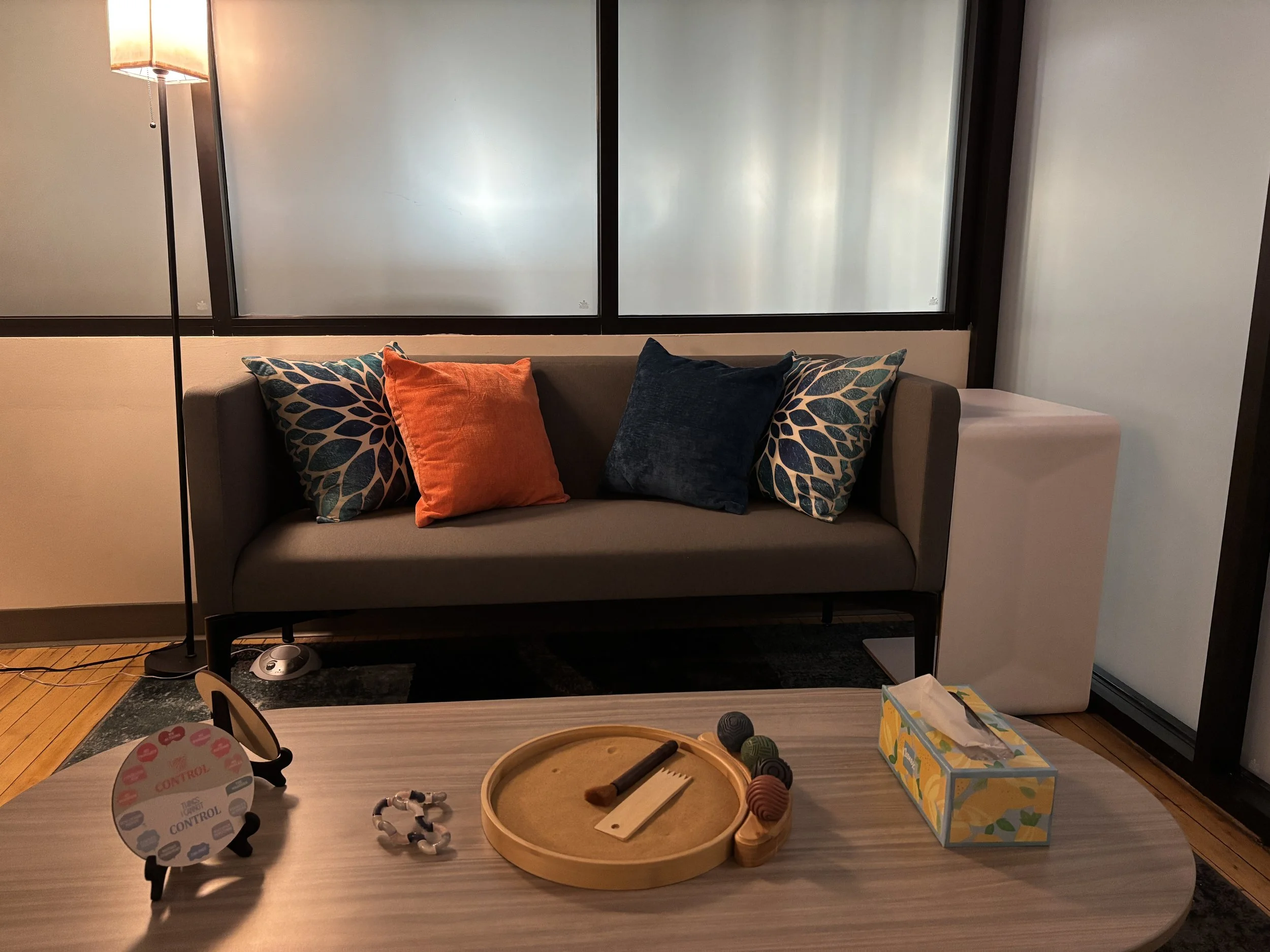
Grow Beyond Your Circumstances With Compassionate Therapy in Chicago
Step into a space of care, insight, and connection—where our therapists and consultants support individuals, couples, and organizations in honoring lived experiences, exploring identity, and moving toward meaningful growth and well-being.
You are Deserving.
We are a group of diverse therapists in a private practice located in Chicago, IL who strive to provide warm, affirming, and inclusive therapy, coaching, clinical supervision, workshops, and consulting services to individuals, groups, and organizations who desire a place to grow, turn to, be seen, and heard. As a private mental health practice, our specialty is centered around healing systemic and generational trauma, enhancing emotional intelligence, supporting relationships, and providing growth opportunities for the advancement of Black, Brown, and Diverse Communities in Chicago and surrounding areas.
“None of us alone can save the nation or the world. But each of us can make a positive difference if we commit ourselves to do so.”
~Cornel West
Therefore, healing and having a healthy mind, body, and spirit is a collective responsibility.

You are safe to express your deepest thoughts.
Sessions, appointments, or groups/workshops take place in-person at our office, or virtually on a secure and HIPPA compliant platform.
Office Location:
320 W Ohio St. Ste. 3W
Chicago, IL 60654
Explore Our Services
Adult, Child, Adolescent, Couples, and Family Therapy
Various therapy modalities are available for those who are striving to navigate life’s transitions and overcome hardships and struggles that may arise from systemic, racial, relational, and/or traumatic experiences. Therapeutic techniques focus on self-esteem, sense of self, emotional intelligence, anxiety and worry, depression, trauma, impostor syndrome, identity development, adulting and adulthood, relational and relationship conflict, family conflict, and interpersonal experiences.
Group Therapy
Group therapy can assist individuals who may feel isolated with the struggles that they have encountered throughout life or currently. Some insurance companies cover the cost of this service. This form of therapy can also be helpful within the company/community/corporate environment to assist multiple individuals at the same time with their mental health needs. Environments run smoother when the individuals within them are emotionally and mentally healthy.
Consulting and Workshops
Consulting and workshops are available for entities seeking guidance around managing wellness and mental health within schools, universities, workplaces, and/or the communities. These services can be provided to students, parents and caregivers, leaders, staff, and/or employees. Consulting, workshop, and wellness program subject examples include, but aren’t limited to, learning skills and coping tools to manage one’s emotional health; overcoming hardships and traumatic moments; psychoeducation; forming healthy workplace relationships and culture; and getting past imposter syndrome.
Clinical Supervision
Clinical supervision is available to professionals and practitioners who need to fulfill their clinical hours for professional licensing and/or therapists, counselors, and coaches who desire extra guidance in their own therapeutic work.
Discover Your
Ideal Therapist
The relationship you build with your therapist is a key factor in achieving meaningful change. Browse our team to learn more about their specialties, and feel free to contact us with any questions you may have
Get started today.
Take the first step towards a healthier, happier you.
Collaborate With Coral Heart Counseling
We’re looking to partner with businesses and organizations that share our vision of supporting positive Mental Health for Black, Brown, and Diverse Communities of Color. Interested in collaborating? Fill out our form below.

















